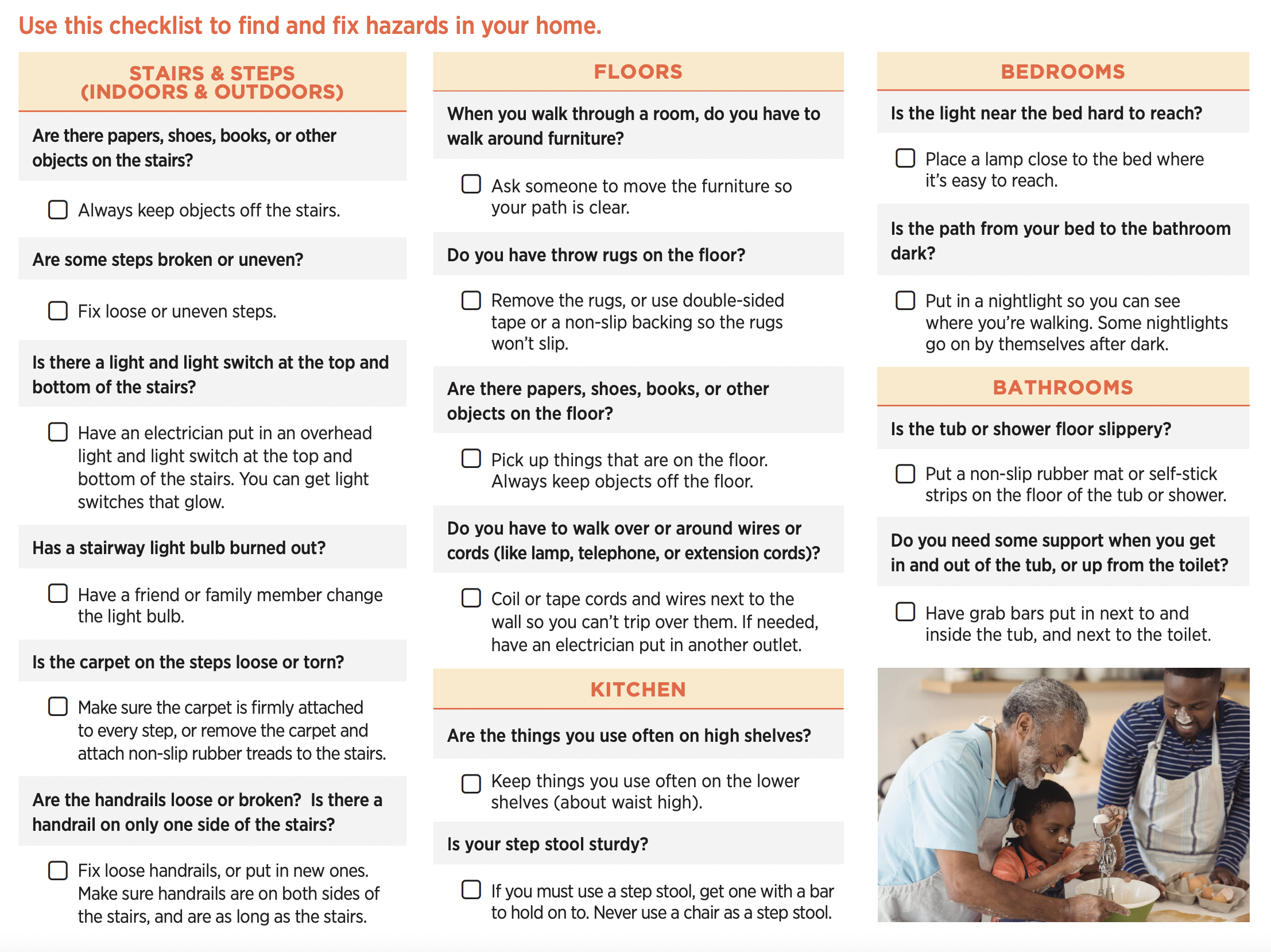4 Easy Facts About Dementia Fall Risk Explained
4 Easy Facts About Dementia Fall Risk Explained
Blog Article
Get This Report about Dementia Fall Risk
Table of ContentsThe 8-Minute Rule for Dementia Fall RiskUnknown Facts About Dementia Fall Risk6 Easy Facts About Dementia Fall Risk Explained6 Easy Facts About Dementia Fall Risk Described10 Simple Techniques For Dementia Fall Risk
The FRAT has three areas: fall threat standing, threat aspect list, and action plan. A Loss Risk Standing includes information about background of recent drops, medications, psychological and cognitive condition of the client - Dementia Fall Risk.If the person scores on a danger variable, the corresponding number of points are counted to the patient's autumn threat rating in the box to the much. If a client's loss risk rating completes five or higher, the individual is at high risk for drops. If the patient scores just 4 factors or reduced, they are still at some threat of falling, and the nurse must use their finest professional analysis to manage all autumn danger aspects as part of a holistic care plan.
These standard strategies, in basic, aid establish a risk-free environment that decreases unexpected falls and defines core precautionary steps for all clients. Signs are essential for people at threat for drops.
Dementia Fall Risk Fundamentals Explained
Wristbands need to include the patient's last and first name, date of birth, and NHS number in the UK. Information ought to be printed/written in black against a white background. Only red color ought to be made use of to signify unique person condition. These recommendations are consistent with present growths in person recognition (Sevdalis et al., 2009).
Items that are as well much may need the client to reach out or ambulate unnecessarily and can potentially be a risk or add to drops. Helps prevent the person from heading out of bed with no help. Nurses respond to fallers' call lights much more swiftly than they do to lights started by non-fallers.
Aesthetic problems can greatly cause drops. Hip pads, when used effectively, might minimize a hip crack when loss occurs. Maintaining the beds closer to the floor decreases the threat of drops and major injury. Positioning the mattress on the floor dramatically decreases loss risk in some medical care setups. Low beds are made to reduce the range an individual falls after moving out of bed.
Dementia Fall Risk - Truths
Patients that are tall and with weak leg muscular tissues that try to sit on the bed from a standing setting are likely to fall onto the bed since it's also reduced for them to lower themselves securely. If a tall client efforts to get up from a reduced bed without aid, the person is most likely to fall back down onto the bed or miss the bed and fall onto the flooring.
They're designed to promote timely rescue, not to avoid drops from bed. Audible alarms can additionally advise the individual not to get up alone. The use of alarm systems can also be an alternative to physical restraints. Besides bed alarm systems, boosted guidance for high-risk patients also might help avoid falls.

Individuals with an evasion stride boost loss opportunities significantly. To lower fall danger, shoes should be with a little to no heel, thin soles with slip-resistant tread, and support go to the website the ankles. Recommend individual to utilize nonskid socks to avoid the feet from gliding upon standing. Urge patients to use ideal, well-fitting shoesnot nonskid socks for ambulation.
The 7-Minute Rule for Dementia Fall Risk
People, specifically older adults, have actually reduced visual capability. Lighting a strange setting assists boost visibility if the patient must rise at night. In a research, homes with appropriate lights record fewer drops (Ramulu et al., 2021). Improvement in lights at home might lower fall rates in older adults (Dementia Fall Risk). Making use of stride belts by all healthcare service providers can promote safety and security when aiding people with transfers from bed to chair.

Caretakers are efficient for assuring a safe, protected, and secure environment. Studies demonstrated very low-certainty evidence that caretakers reduce loss danger in intense treatment medical facilities and just moderate-certainty that choices like video surveillance can decrease sitter use without raising fall danger, recommending that caretakers are not as useful as initially believed (Greely et al., 2020).
Facts About Dementia Fall Risk Revealed

Boosted physical fitness decreases the danger for falls and limits injury that is received when autumn takes place. Land and water-based workout programs may be likewise useful on balance and gait and thus lower the threat for drops. redirected here Water workout might contribute a positive advantage on equilibrium and stride for women 65 years and older.
Chair Increase Workout is a straightforward sit-to-stand workout that assists strengthen the muscular tissues in the upper legs and butts and enhances flexibility and independence. The objective is to do Chair Surge exercises without using hands as the customer becomes stronger. See resources area for a comprehensive direction on how to perform Chair Rise exercise.
Report this page